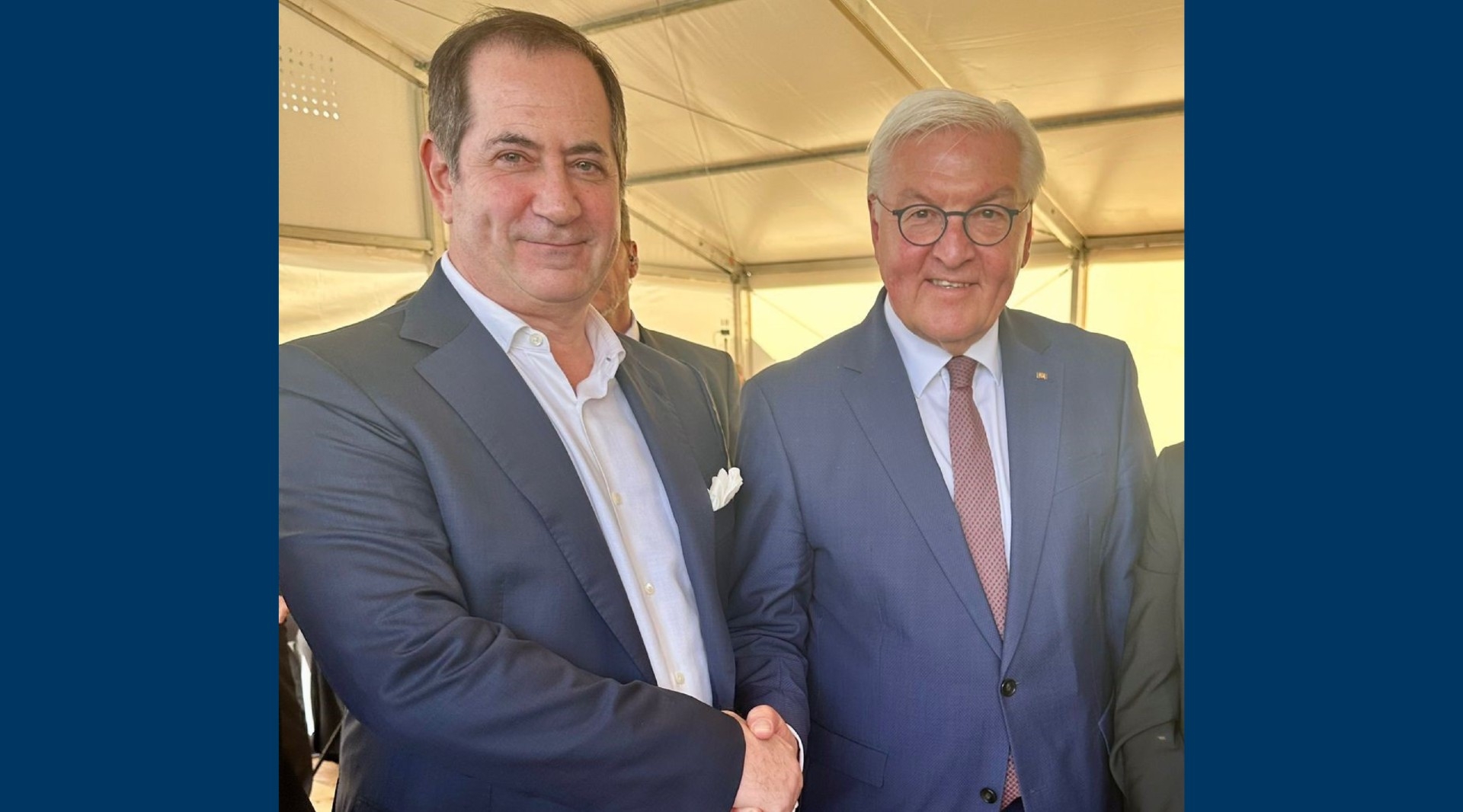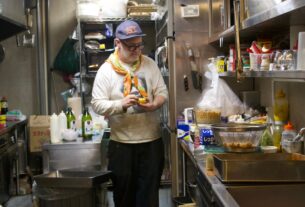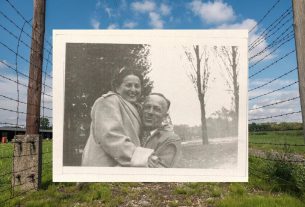For half a millennium until the Holocaust, the cosmopolitan city of Thessaloniki, Greece, had a unique claim to fame: it was Europe’s only major city with a Jewish majority.
But the golden age of Thessaloniki’s mostly Sephardic Ladino-speaking Jewish community came to a sudden end with the Nazi occupation of Greece in 1941 and turned cataclysmic with the deportation two years later to Auschwitz of nearly all the city’s Jews. By the end of World War II, some 65,000 Greek Jews — 87% of the total and 96% of those from Thessaloniki — had been killed, leaving barely 2,000 survivors in Thessaloniki (also known as Salonika).
Among them were the parents of Dr. Albert Bourla, a veterinarian who would go on to become the chairman and CEO of Pfizer, one of the world’s largest pharmaceutical companies.
In 2022, Bourla won the Genesis Prize — often described as the Jewish Nobel — for having led the development of Pfizer’s COVID-19 vaccine. Stan Polovets, co-founder and chairman of the Genesis Prize Foundation, said in announcing the reward, “Millions of people are alive and healthy because of what Dr. Bourla and his team at Pfizer have accomplished.”
Now, with global antisemitism at its worst levels since World War II, Bourla is about to realize another milestone: the long-awaited opening of a Holocaust Museum of Greece.
Bourla donated the $1 million Genesis Prize money toward construction of the museum. The museum is also being funded by the Stavros Niarchos Foundation, and the governments of Greece and Germany. The management of the museum is currently trying to raise an additional $10 million.
“Those who know me know that in addition to being very proud of my Jewish heritage, I am equally proud of being Greek,” Bourla said in an emotional June 2022 speech in Jerusalem accepting the Genesis Prize. “My mother’s courage and optimism came from her experience of narrowly escaping death at the hands of the Nazis. In fact, both of my parents turned their experience surviving the Holocaust into something positive and life-affirming. This clearly shaped my worldview.”
The 9,000-square-foot museum occupying eight floors in an octagon-shaped structure will be located at the site of Thessaloniki’s Old Railway Station, where the first Nazi train carrying Jews to Auschwitz departed on March 15, 1943.
But the museum, slated to open in 2026, won’t be just about the tragedy of the Holocaust. Exhibits and artifacts will tell the story of more than 2,300 years of Greek Jewish history in Thessaloniki and 38 other communities, beginning with the ancient Romaniote Jews who settled in Greece during the reign of Alexander the Great.
At an Oct. 29 groundbreaking ceremony in Thessaloniki, Polovets was joined by German President Frank-Walter Steinmeier, Greek President Katerina Sakellaropoulou, and local dignitaries and Holocaust survivors.
“I was honored to participate and was moved by the ceremony, during which President Steinmeier said he ‘felt shame’ and that the memory of what was done to the Jewish people on this site ‘cannot be erased.’ That is why this museum is so important,” Polovets said. “The memory of this once-vibrant Greek Jewish community and its near destruction by the Nazis — especially during the current wave of rising global antisemitism — must never be erased.”
Only about 5,000 Jews remain in Greece: About 4,000 live in Athens, and the remainder live in Thessaloniki, Ioannina, Rhodes, Corfu and other communities. Meanwhile, Greece has not been immune to the wave of antisemitism sweeping Europe. Vandalism of Jewish cemeteries and Holocaust memorials is fairly commonplace.
A 2014 global survey of antisemitism by the Anti-Defamation League found that 69% of Greeks harbor antisemitic views — the highest percentage of any country in the world outside the Middle East. While those findings are sometimes disputed, Greece continues to struggle with antisemitism.
However, physical violence against Greek Jews is extremely rare, and the current Greek government, as well as the one that preceded it, are considered among the most pro-Israel in Europe. Greece observes International Holocaust Remembrance Day, and in 2014 the parliament outlawed Holocaust denial.
A big push for the Holocaust museum came from Thessaloniki’s former mayor, 82-year-old Yiannis Boutaris, who died on Nov. 4, less than a week after the Holocaust museum’s groundbreaking ceremony. Boutaris announced that his city would build the museum at a 2017 event attended by Israeli Prime Minister Benjamin Netanyahu and other dignitaries.
“It will symbolize our shame,” Boutaris said at the time, “for what happened, for what we did, and mostly for what we could not or did not wish to do… during and after the war.”
In addition to Bourla, other famous Jews with roots in Thessaloniki include actor Hank Azaria, Israeli businessman and philanthropist Leon Recanati, his sister the philanthropist Jude Recanati, actress Lea Michele, former Nevada congresswoman Shelley Berkley and Belgian-born American fashion designer Diane von Fürstenberg.
Polovets said Bourla’s donation aligns with the Genesis Prize Foundation’s values and mission of inspiring Jewish pride.
“With the rise of global antisemitism, education will be at the center of the museum’s activities, hosting permanent and temporary exhibitions and archives that will highlight the value of preserving the remembrance of the Holocaust, acceptance and respect for diversity, human rights, and freedom,” he said.
Polovets said he hopes the museum will inspire visitors to fight hatred from spreading today.
“Hatred in any form leads to denial, disrespect and destruction,” he said. “Democracy and respect for others are values that can never be taken for granted, and each of us has a responsibility to stand up to all forms of hatred.”
Support the Jewish Telegraphic Agency
Help ensure Jewish news remains accessible to all. Your donation to the Jewish Telegraphic Agency powers the trusted journalism that has connected Jewish communities worldwide for more than 100 years. With your help, JR can continue to deliver vital news and insights. Donate today.




